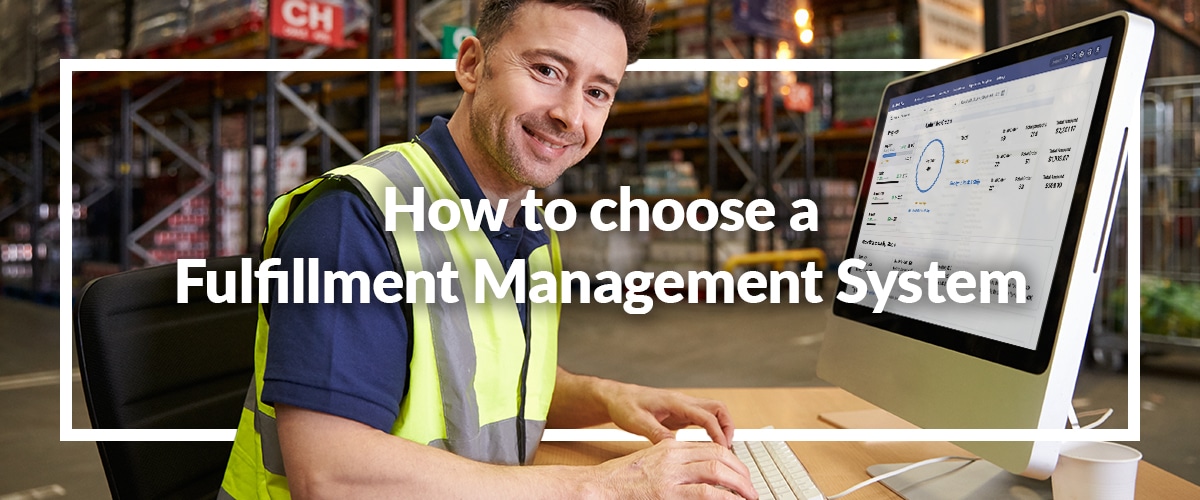Today, consumers expect brands to deliver the correct order at the right time and in perfect condition. To meet these high expectations, direct-to-consumer (DTC) brands need an advanced warehouse management system that does more than just streamline internal warehouse operations.
That's where an AI-powered Fulfillment Management System (FMS) comes in. It makes warehouse activities more efficient through automation and improves speed and accuracy in the entire order-to-delivery process.
Fulfillment management systems simplify the process of getting products from warehouse to customer quickly and efficiently. Logiwa leads the way in this new category of fulfillment technology by offering a cloud-based, AI-driven FMS, Logiwa IO.
This article introduces the key features of Logiwa IO, how it benefits brands, and how the technology differs from traditional warehouse management systems (WMS).
Contents
Understanding Fulfillment Management Systems
Fulfillment management systems are software solutions. They provide a central platform for managing inventory and activities involved in receiving, processing, and delivering customer orders. Both FMS and traditional WMS aim to make warehouse operations efficient.
But one key difference sets them apart: traditional WMS solutions are designed to handle internal warehouse operations like storage and inventory management. FMS solutions go beyond that.
In addition to streamlining internal warehouse activities, FMS focus on fulfillment aspects that directly influence consumers, such as real-time order tracking, shipping options, and return management. In other words, FMS offer all the features of traditional WMS plus more advanced functionalities.
Because a fulfillment management system like Logiwa IO is built to manage complex, multichannel sales, DTC ecommerce brands can leverage the technology to fulfill orders from different sales platforms, from websites and mobile apps to social media.
Key features of Fulfillment Management Systems
Multiple fulfillment solutions exist, but they are not all created equal. What crucial features should businesses consider when looking for a fulfillment management system that can carry out its basic functions?
Bonus: Get our helpful “Fulfillment Management System (FMS) Checklist” to ensure you’ve thought of everything when considering an FMS for a more efficient and cost-effective warehouse.
Warehouse and fulfillment automation
Third-party logistics, warehouse operators, and online business owners need an FMS solution with built-in automation algorithms. And if necessary, the technology should allow them to create customized automation rules that fit the specific needs of an organization's warehouse and fulfillment operations.
Some of the key processes a typical FMS automates include:
- Sales and order tracking: The system makes it easy to see incoming orders and the status of each order in real time, providing clear communication among stakeholders in case of any unexpected delays.
- Real-time inventory management: This automation feature lets brands stay up-to-date with inventory movements to avoid over- or under-stocking.
- Automated product ordering: This functionality enables businesses to automate inventory replenishment processes, minimizing time-consuming manual stock checks and reordering.
- Returns management: FMS promise a more efficient returns process, even using robotics to achieve up to 25% faster returns over manual processes.
- Smart order routing: The software automatically redirects customer orders to a warehouse nearest to consumers and where the product is in stock. This feature is vital for enterprises that keep inventory in multiple storage facilities.
Integration capabilities
Most online businesses have multiple sales channels. For this reason, one key feature they should look for in a fulfillment management system is the ability to integrate easily with a brand's website store and multiple ecommerce marketplaces like Amazon, Shopify, and WooCommerce. This enables multichannel sales management on a central platform.
Apart from market retailers, a reliable FMS integrates with all popular carriers and performs automated shipping rate shopping to help businesses choose shipping partners with the lowest fees. It is also best practice to select a fulfillment technology that integrates with the accounting software a company is already using.
Cloud-based for optimum scalability
A cloud-based FMS like Logiwa runs on remote servers and is accessed through the Internet instead of installed on a business's in-house hardware. While not all fulfillment management systems are cloud-native, there are reasons to use FMS solutions that operate on the cloud, such as being:
- Always accessible: A user can manage warehouse operations from any location by logging into the system via a desktop or mobile device connected to the internet.
- Less costly: With cloud-based FMS software, users don't need to buy and maintain local hardware, minimizing upfront and ongoing expenses.
- Highly scalable: Users can easily increase or decrease software usage to meet their business's changing needs without purchasing extra hardware.
The right FMS solution improves order fulfillment and optimizes warehouse operations like picking and packing.
Watch the video above to see the benefits of Logiwa IO's innovative headless architecture.
Comparing FMS and WMS
When it comes down to FMS vs. WMS, how do the two types of warehouse management systems compare, and which one is better?
A traditional WMS optimizes internal warehouse operations like inventory management and picking. On the other hand, fulfillment management systems are designed to enhance the whole order fulfillment process, including internal warehouse operations and customer-facing activities like order tracking, shipping, and returns. This makes FMS suitable for high-volume DTC fulfillment compared to WMS which is geared toward warehouse operations.
Following is a detailed comparison of FMS and WMS.
Integration
Traditional WMS are often designed to function independently, with limited built-in capabilities for connecting with other business technologies. This can cause inefficiencies when data needs to be transferred from one software solution (e.g., WMS) to another (e.g., accounting software like QuickBooks).
Meanwhile, FMS like Logiwa IO easily integrate with multiple accounting technologies, shipping carriers, and ecommerce sales channels. Multichannel integration enables high-volume DTC businesses to manage orders from different channels in one place.
Scalability and flexibility
Upgrading traditional WMS to adapt to increased workloads or new functionalities can be complex and time-consuming. That's because of their inflexible software design.
With a cloud-native FMS solution, businesses can readily increase or decrease software usage on demand. This makes it easy for organizations to adapt to market changes, growth needs, and seasonal sales fluctuations.
Scope of functionality
Enterprises with multiple warehouses can't manage all their storage facilities in one platform using a traditional WMS. The technology is designed to work in a single location.
In comparison, modern FMS solutions are equipped with multi-warehouse management capabilities. They allow businesses to segment inventory from different warehouses and manage all their multi-location storage facilities in a centralized platform.
Benefits of implementing a Fulfillment Management System
Why should businesses use FMS solutions in their warehouses or fulfillment facilities?
Streamlines warehouse operations
FMS uses smart automation, artificial intelligence, and robotics to minimize manual processes in the warehouse. For instance, Logiwa IO uses AI automation to optimize packing and picking operations and reduce human error.
Improves inventory management
FMS provide real-time inventory data. Enterprises can see the exact amount of remaining stock at any time, enabling them to optimize inventory levels. This guarantees that products are always available whenever consumers place orders.
Speeds order fulfillment through Smart Order Routing
FMS solutions can automatically determine the most efficient path for fulfilling customer orders. They achieve this by identifying the fulfillment center that should handle each order based on factors like inventory availability and customer proximity. When an order is picked from the location closest to a consumer, it is delivered as fast as possible.
Saves money
Besides reducing labor costs through automation, fulfillment management systems have other ways of saving a business money.
Logiwa IO, for example, comes with a shipping rate comparison tool built right into the system. With this feature, an enterprise can compare available shipping carriers to identify a transportation partner with the lowest fees and fastest delivery times.
The right Fulfillment Management System for fast delivery times
Each business may have specific needs when it comes to warehouse management and order fulfillment. Enterprises should evaluate FMS and traditional WMS carefully before choosing the technology that best suits their unique needs.
Logiwa IO integrates seamlessly with a business's existing technologies and can be tailored to fit an enterprise's requirements. Its intuitive user interface means that companies won't waste time learning to use the system.
Schedule a demo to learn how to integrate Logiwa IO, the leading fulfillment management system into your business operations.
FAQs about Fulfillment Management Systems (FMS)
Can FMS integrate with my ecommerce site?
Yes, modern FMS easily integrates with ecommerce sites and online marketplaces like Amazon and Ebay.
Can Logiwa IO create automated workflows?
Many warehouse workflows can be automated successfully including job creation and picking and packing. With Logiwa iO, creating automated workflows is a breeze.
Do FMS handle multichannel ecommerce?
Yes. With the rapid growth of ecommerce FMS are designed with multichannel inventory management in mind. From syncing across channels in real time to selecting optimum fulfillment and shipping locations, FMS excel multichannel order processing.
Scale up operations with ease with Logiwa IO’s serverless FMS
Warehouse Management
Modern digital WMS powers a modern fulfillment experience





